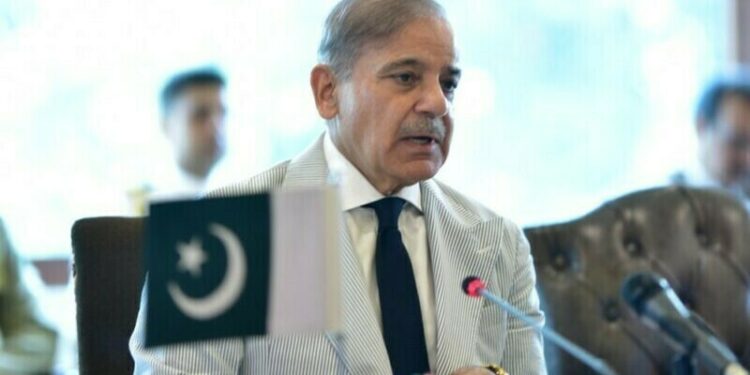National Leadership Convenes to Address Rising Terrorism Threat
In response to the increasing incidents of terrorism in the country, a high-level closed-door meeting of the National Security Parliamentary Committee was held at the Parliament House. The meeting, chaired by Speaker National Assembly Ayaz Sadiq, aimed to forge a national consensus on tackling terrorism and ensuring national security. However, the Pakistan Tehreek-e-Insaf (PTI) and its allied parties refused to participate, highlighting ongoing political tensions.
Key Participants in the Meeting
Several prominent political and military leaders attended the meeting, underscoring the gravity of the issue. Among those present were:
- Prime Minister Mian Muhammad Shehbaz Sharif
- Army Chief General Asim Munir
- Chief Minister Khyber Pakhtunkhwa Ali Amin Gandapur
- Chief Minister Punjab Maryam Nawaz
- Chief Minister Balochistan Sarfaraz Bugti
- Governors of Balochistan, Khyber Pakhtunkhwa, and Punjab
- Inspector Generals of Police from all four provinces
- Federal Ministers, including Defense Minister Khawaja Asif and Finance Minister Muhammad Aurangzeb
- Prime Minister of Azad Jammu and Kashmir Anwarul Haq
Additionally, representatives from various political parties were in attendance. Sixteen Members of Parliament (MPs) from the Pakistan People’s Party (PPP), led by Bilawal Bhutto Zardari, and four MPs from the Muttahida Qaumi Movement (MQM), led by Khalid Maqbool Siddiqui, participated. A delegation from Jamiat Ulema-e-Islam-Fazl (JUI-F), led by Maulana Fazlur Rehman, was also present.
Opposition Boycott Raises Concerns
Despite the national significance of the meeting, the PTI and its allied parties opted to boycott, further highlighting political divisions in the country. Speaker Ayaz Sadiq expressed his disappointment over their absence, emphasizing the need for unity in addressing security concerns. “It is a pity that the opposition did not attend today’s meeting. We had invited them, and it would have been better if they had participated. We must work together to steer the country out of its challenges,” he stated.
Briefing by Security Leadership
The meeting began with a detailed briefing from the military leadership, including intelligence agency heads. The briefing covered:
- Current Security Challenges: An overview of the recent surge in terrorist activities across different regions.
- Counter-Terrorism Operations: Updates on ongoing and planned military operations to neutralize terrorist threats.
- Border Security Measures: Strategies to prevent cross-border infiltration of militants.
- Terror Financing: Efforts to curb financial support for terrorist organizations.
Following the briefing, parliamentary leaders, including Bilawal Bhutto Zardari, were given the opportunity to express their views and pose questions to the security officials.
Prime Minister Shehbaz Sharif’s Address
Prime Minister Shehbaz Sharif delivered a resolute address, reaffirming the government’s commitment to eradicating terrorism. “Terrorism has become a scourge for our country. We will find a solution to this menace and chase down the last terrorist. We cannot forget the sacrifices of our martyrs who laid down their lives to protect our homeland. We will honor their sacrifices by ensuring a terrorism-free Pakistan.”
The Prime Minister paid tribute to the armed forces, police, and intelligence agencies for their relentless efforts in safeguarding national security. He also stressed the need for political unity in combating extremism and maintaining peace.
Security Measures Strengthened
In light of the heightened security concerns, extraordinary security arrangements were made for the meeting. Law enforcement agencies were deployed around the Parliament House to ensure a safe and secure environment.
Future Course of Action
The meeting concluded with a consensus on implementing stronger counter-terrorism measures. The following key decisions were made:
- Enhanced Intelligence Sharing: Improved coordination between federal and provincial intelligence agencies to counter threats more effectively.
- Strengthening Legislation: Reviewing and amending anti-terrorism laws to facilitate stricter action against terrorists and their facilitators.
- Expanding Counter-Terrorism Operations: Increasing military and police operations in terrorism-affected regions.
- Public Awareness Campaigns: Launching nationwide campaigns to educate citizens on identifying and reporting suspicious activities.
Conclusion: A Unified Effort Against Terrorism
Despite political differences, the high-level meeting reinforced the urgency of a collective effort to combat terrorism. The Prime Minister’s strong stance and the military’s commitment to national security reflect the government’s determination to restore peace and stability.
While the absence of the opposition remains a concern, the government continues to urge all political stakeholders to set aside differences and unite against the common enemy of terrorism. With a multi-faceted approach involving intelligence, military action, and public cooperation, Pakistan aims to cleanse the nation of this persistent threat.

























